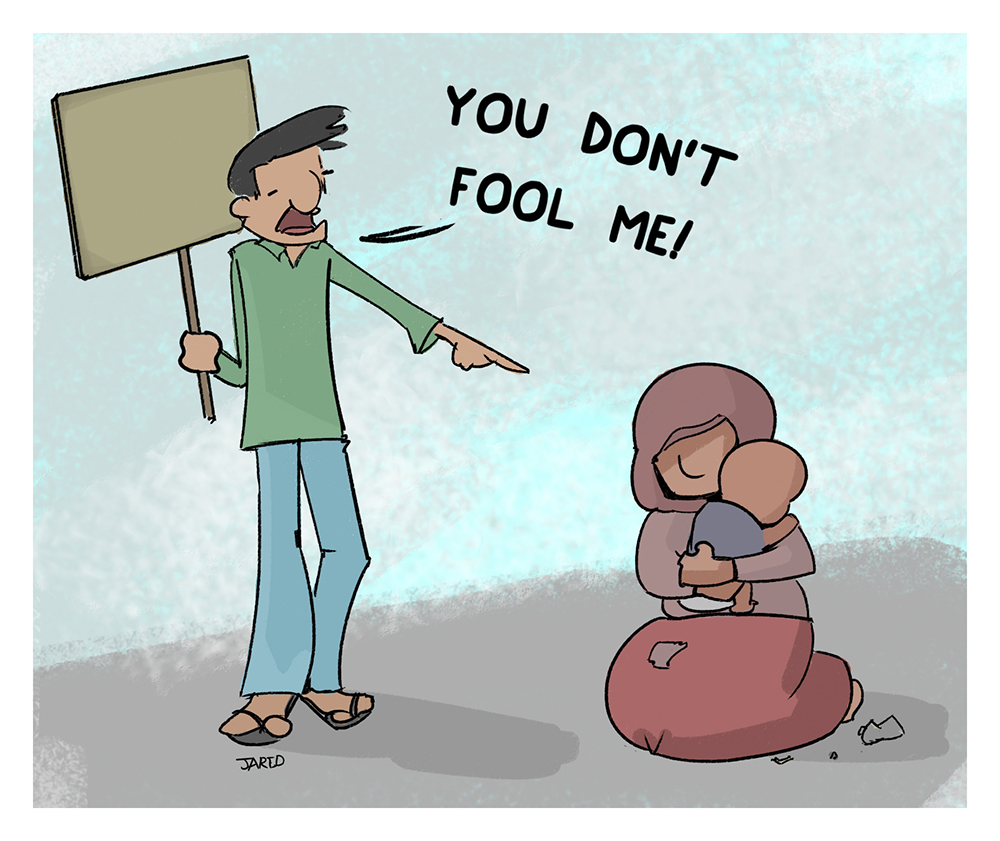A public reassessment of the Rohingya crisis will require deeply uncomfortable conversations to be held in the open, and great courage and humility on the part of many prominent figures.
As the wheels of justice slowly turn at the International Court of Justice in The Hague, it’s easy to forget the hysteria that took over Myanmar in late 2017.
Newspapers across the world ran images of the hundreds of thousands of Rohingya fleeing a military crackdown in Rakhine State, which had been launched in response to attacks by Rohingya militants on security posts. As international condemnation followed, the pages of Myanmar social media were filled with defiance. The popular narrative went that the largely stateless Rohingya had attacked their hosts, the Myanmar citizenry, in a campaign of Islamist terror that the world was intent on denying. Faced with this apparent threat, members of the public felt they had a duty to rally behind their government.
Pressured to conform, and fired by fear and anger at what they perceived to be blatant lies in international media, many people said things they probably now regret. One of them might be Ko Zayar Lwin, the jailed member of the Peacock Generation thangyat troupe. As Frontier reported on May 24, the young dissident wrote a series of Facebook posts at the height of the crisis that included claims that the Rohingya – whom he called by the derogatory labels “kalar” and “Bengali” – were burning down their homes before fleeing to Bangladesh, and that it was difficult to distinguish ordinary Rohingya from “terrorists”.
“The situation has turned these people whom we regard as terrorists into poor things in the eyes of the world,” he wrote in a post dated September 8, 2017, showing what many would regard as a shocking lack of empathy.
“These people” had been denied citizenship and confined for years to camps and villages without freedom of movement, and with extremely limited access to health and schooling. They were now in the crosshairs of a military whose history of violence against civilians is well documented.
That the Frontier article caught many readers (and even international human rights groups) by surprise is testament to how many of the same sentiments were being broadcast on social media. Even anti-Rohingya comments from well-established luminaries of civil society and the democracy movement got lost in all the noise. This was not the behaviour of a few rogue individuals but a societal response.
Given that culpability for anti-Rohingya hate speech is so widely shared, why pick on Zayar Lwin? After all, he and his Peacock Generation colleagues are behind bars for bravely lampooning the military, the main author of the alleged atrocities against the Rohingya.
The Peacock Generation were jailed unjustly and should be released, but it’s also the responsibility of journalists to give readers the full picture about figures in the public eye.
It was regrettable that Zayar Lwin could not be interviewed and asked to clarify whether he still holds the same views about the Rohingya. Frontier hopes to give him this opportunity when he is free to speak to the media. But no one disputes he made those comments, and few would deny their significance at a time when hate speech on social media gave the military cover as they went from village to village in northern Rakhine, committing acts that even the government-appointed Independent Commission of Enquiry has said included war crimes, and which United Nations investigators said could amount to genocide.
If Zayar Lwin – or anyone else who has been named for using hate speech – wants to correct the damage that their comments have inflicted, then the path is clear: an unequivocal public retraction. This would require a huge amount of courage and humility, but it could be just what is needed to prompt a broader reckoning in society about the events of 2017.
Until now, there have been no signs of such a public reassessment, even as the government’s position in the international arena has changed – from denying outright that atrocities were committed, to conceding at the ICJ in December that war crimes may have been committed, but that the intent to commit genocide cannot be proven. In the absence of deeply uncomfortable conservations held in public, such a reckoning may never happen. Frontier’s article was intended to contribute to such a conversation.
The alternative would be to keep comments like those made by Zayar Lwin hushed up as another dirty little secret of Myanmar’s democracy movement, for fear of undermining the broader struggle against military domination. It would mean waiting for attitudes to change unprompted – which, year after year, they fail to do.







